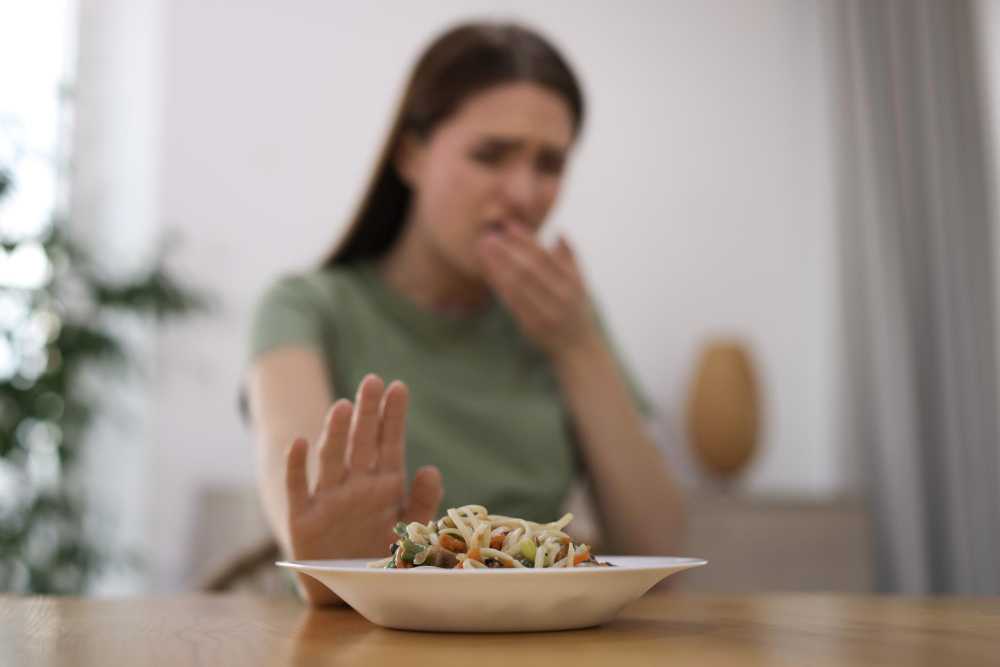Rebecca from London sent us an email about her anorexia issues had as a teenager, and her worries about infertility issues.
“I struggled with anorexia as a teen but have since overcome my eating disorders.
Now I’m trying to conceive, but I’m having no luck. Is there an association between eating disorders and infertility possible? I cannot figure out so please I need your invaluable assistance on my problem”.
As a simple answer to your question is Yes. Eating disorders can affect your ability to get pregnant. Fertility problems can arise during the disorder or years after it has been cured.
But first of all, we should make clear about eating disorders. What do we mean and if there is a way can affect infertility or fertility?
According to NHS An eating disorder is a mental health condition in which you use food control to deal with emotions and other situations.
Unhealthy eating habits can include eating too much or too little, as well as being concerned about your weight or body shape.
Anyone can develop an eating disorder, but teenagers aged 13 to 17 are the most vulnerable.
Most people can recover from an eating disorder with treatment.
The most common eating disorders are:
- anorexia nervosa – trying to control your weight by not eating enough food, exercising too much, or doing both
- bulimia – losing control over how much you eat and then taking drastic action to not put on weight
- binge eating disorder (BED) – eating large portions of food until you feel uncomfortably full (https://www.nhs.uk/mental-health/feelings-symptoms behaviours/behaviours/eating-disorders/overview/)
A question that has already been asked by many people is:
How many people suffer in the UK because of eating disorders?
As https://www.mind.org.uk suggests, 1 in 4 people will experience a mental health problem of some kind each year in England.
1 in 6 people report experiencing a common mental health problem (like anxiety and depression) in any given week in England.

In any given week in England:
- Mixed anxiety and depression: 8 in 100 people
- Generalised anxiety disorder (GAD): 6 in 100 people
- Post-traumatic stress disorder (PTSD): 4 in 100 people
- Depression: 3 in 100 people
- Phobias: 2 in 100 people
- Obsessive-compulsive disorder (OCD): 1 in 100 people
- Panic disorder: fewer than 1 in 100 people.
For people at breeding ages, statistics reveal that:
- 6.4% of people in England have experienced symptoms of an eating disorder
- About 25% of those experiencing eating disorder symptoms are male
- The peak age of onset for an eating disorder diagnosis is between 16 and 20 years
- Up to 725,000 people in the UK have an eating disorder
- 0.4% of 5–19-year-olds experience symptoms of an eating disorder
One study in Norway discovered that one out of every 21 pregnant women had an eating disorder, with binge eating disorder being the most common.
Outcome studies, on the other hand, have consistently found that fertility rates in women with a lifetime history of anorexia nervosa do not differ from those in women without such a history.
Thus, despite the high prevalence of menstrual irregularities, it appears that women with anorexia nervosa are becoming pregnant.
But being pregnant may face a lot of difficulties as we see later in this article.
(https://www.verywellmind.com/pregnancy-and-eating-disorders-4179037)
So back to our main question: is there a scientifically proven link between eating disorder and infertility?
Eating disorders such as anorexia and bulimia can have serious consequences for your physical and mental health.
Few people are aware that such disorders can also have an impact on your ability to conceive in the future.
Eating disorders do, in fact, have a direct impact on fertility. Even if you are able to become pregnant while suffering from an eating disorder, this can endanger both you and your child.
Controlling an eating disorder takes a lot of time and effort. (https://www.healthshots.com/preventive-care/reproductive-care/eating-disorders-can-affect-fertility-an-expert-tells-you-what-you-need-to-know/)
People who have eating disorders are nutritionally deficient. Being overweight or underweight as a result of different eating habits can also result in hormonal imbalance.
This has the potential to disrupt normal menstrual cycles and ovulation.
When a woman’s endocrine system (which is in charge of hormone production) is harmed, the quality of her eggs suffers.
Women who have amenorrhoea, no menstrual cycles, or irregular periods may have difficulty getting pregnant. Hormones tend to fluctuate during the course of an eating disorder.

Eating disorders can frequently lead to ovarian failure in women in their forties.
The essential vitamins and nutrients needed for fetal growth are depleted, particularly when dealing with binge eating disorders.
Because of irregular periods, it is difficult to know when to begin trying for a baby, increasing the likelihood of unplanned pregnancies.
Women who have amenorrhea as a result of an underlying eating disorder are more likely to develop bone loss and osteoporosis.
Women who are underweight as a result of anorexia may have lower levels of leptin, a hormone that regulates appetite and body weight.
It also regulates the brain’s hypothalamus, which regulates the production of two hormones: follicle-stimulating hormone (FSH) and luteinizing hormone (LH).
Both of these hormones are necessary for the ovulation process.
A decrease in leptin hormone can impair hypothalamic function and cause ovulation problems, resulting in irregular periods and infertility.
Obesity or being overweight, in addition to hormonal imbalance, is another factor linked to fertility.
Overeating can result in elevated levels of male hormones, or androgens, especially in younger women. This can also cause irregular periods and ovulation blockage, leading to infertility.
There are also some psychological side effects.
People suffering from eating disorders are more likely to suffer from mental health issues.
Women can experience stress as a result of their distorted body shape and perfectionism.
Menstrual cycle disruption and infertility are linked to stress and depression.
Stress can even increase the likelihood of developing unhealthy habits such as smoking, drinking alcohol, or using drugs.
During pregnancy, eating disorders can cause complications for both the mother and the baby.
Pregnancy eating disorders can result in low birth weight, premature labour, stillbirth, miscarriages, and delayed fetal growth.
It may also increase the likelihood of C-sections.
Because the psychological effects of eating disorders can lead to unhealthy lifestyle habits such as smoking and drinking, these habits can have an impact on your fertility.